Renting a villa in Italy sounds like a dream, doesn’t it? The idea of waking up in a charming villa, surrounded by stunning landscapes and rich history, is enough to excite anyone. One of the key tips for making your villa rental experience enjoyable is to plan and book well in advance.
Villas, especially in high-demand destinations, can book up quickly, so the earlier you secure your spot, the better your chances of landing that perfect getaway.
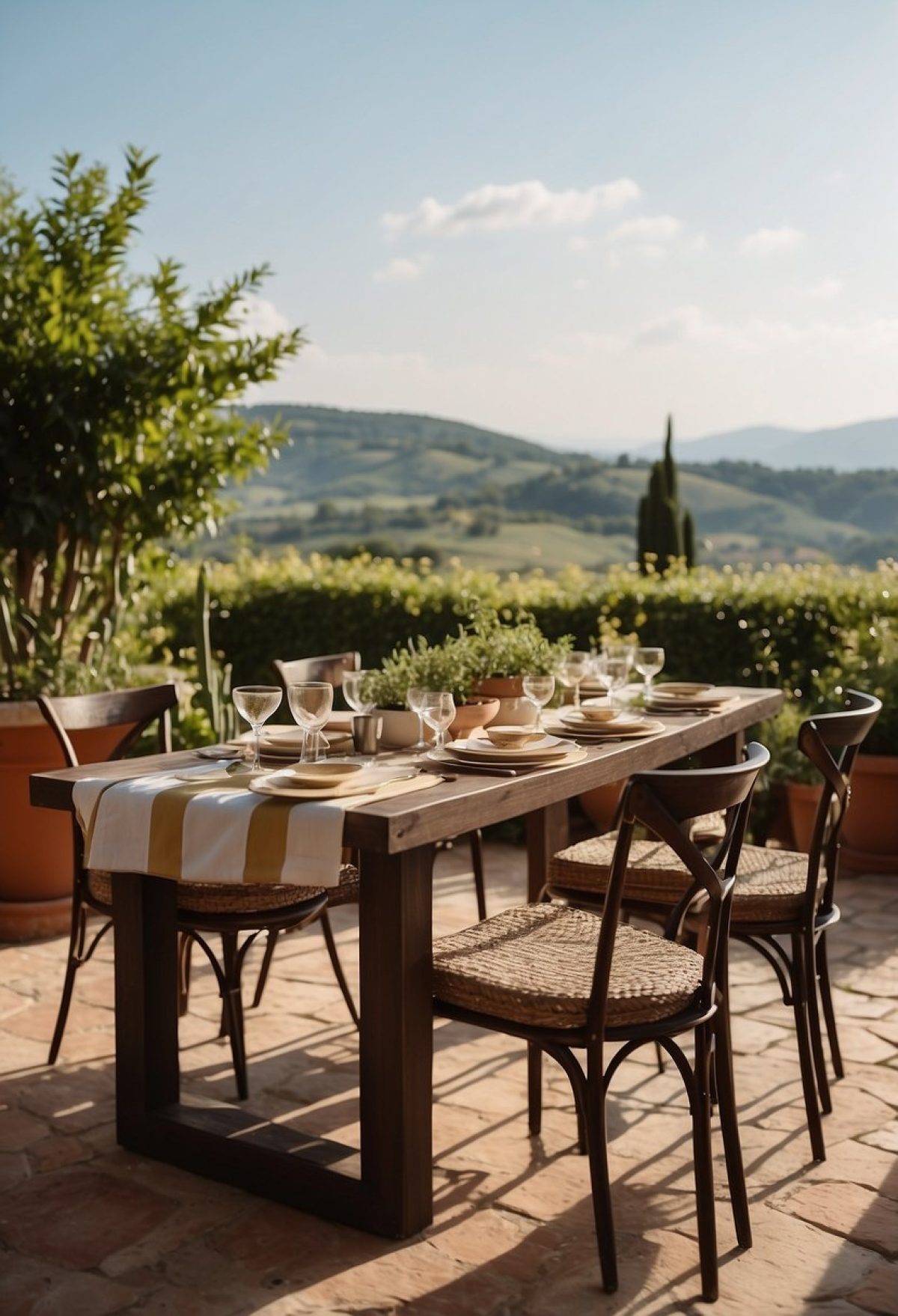
Choosing the right villa is another crucial step. We need to consider factors like location, amenities, and pricing. Do you want to be near a bustling city, or do we prefer a quiet countryside retreat? It’s also important to remember the different seasons and how they affect pricing and availability. For instance, villa prices are higher during the summer and holidays. Knowing this can help us plan a budget-friendly trip.
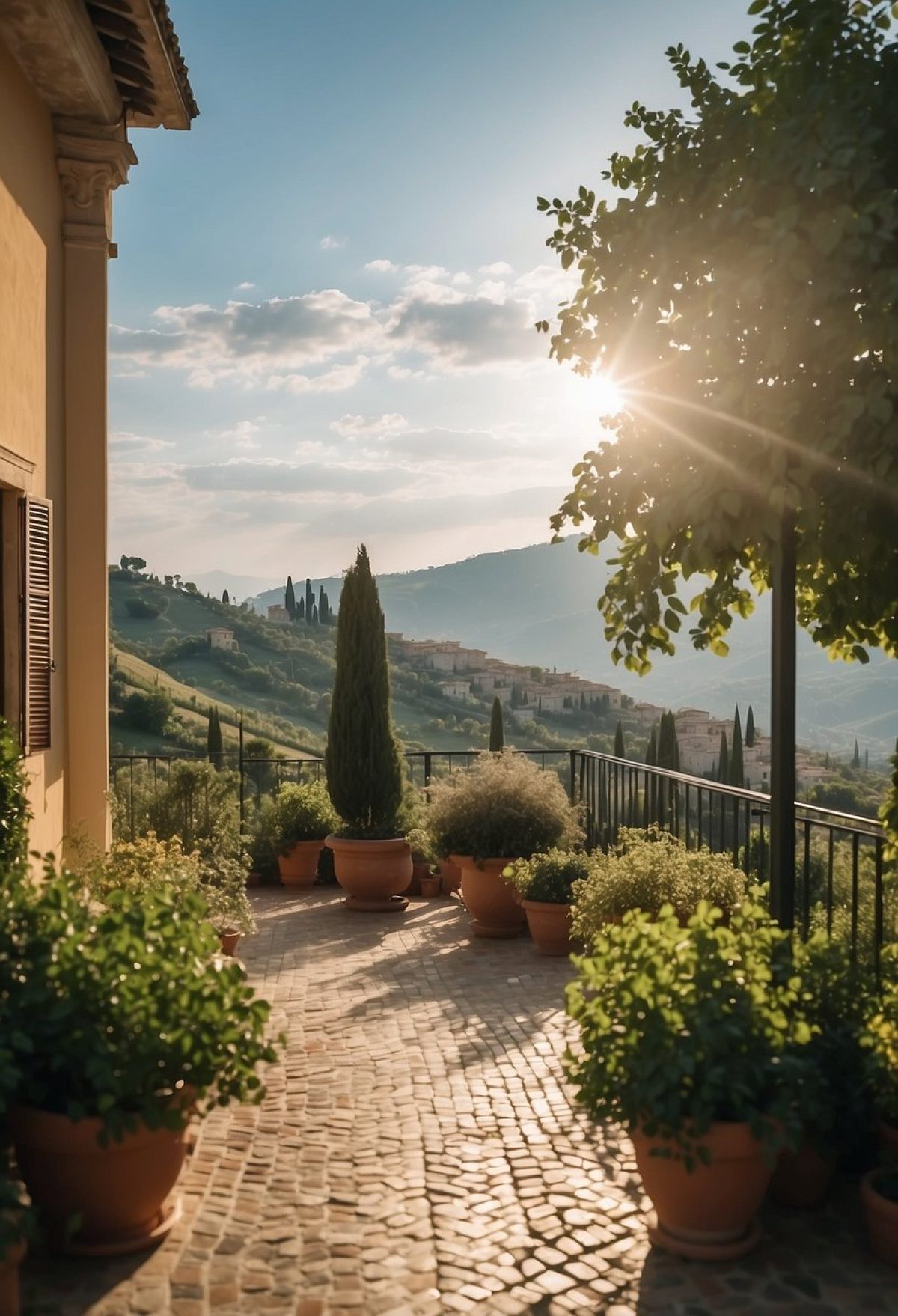
Once we’ve picked our dream villa, we should focus on essential pre-travel planning. This includes understanding local laws, managing utilities, and finding nearby attractions. Among the top tips is to use a reputable rental agency. This ensures a smoother process and provides a point of contact if any issues arise during our stay. Let’s make our Italian villa vacation truly unforgettable with these practical and easy DIY tips.
Key Takeaways
- Book your villa well in advance to secure your spot
- Choose the right villa based on location, amenities, and seasonal pricing
- Use a reputable rental agency to ensure a smooth experience
Choosing the Right Villa Rental
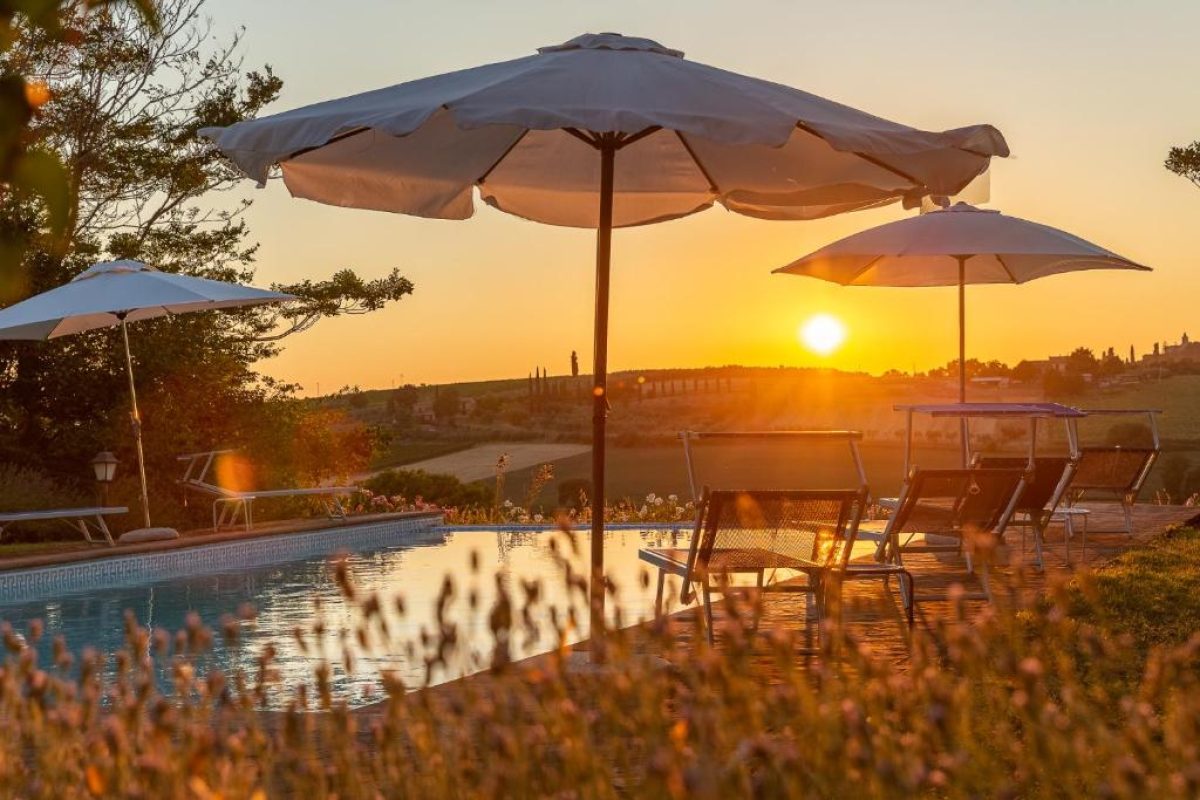
The choices when renting a villa in Italy can be overwhelming. Let’s break down the process and focus on your needs, location, prices, and recommendations.
Assessing Your Needs and Preferences
First, we need to figure out what we want from our villa. Are we looking for a peaceful countryside retreat in Tuscany or a vibrant seafront property on the Amalfi Coast? Consider the size of the villa, the number of bedrooms, and amenities like a pool or a garden.
Let’s not forget our personal preferences. Do we want a modern villa or one with a rustic Italian charm? Are we planning to cook our meals, or do we prefer to dine out? These questions will help us narrow down our choices and find the villa that best suits us.
Researching Potential Locations
Italy is full of beautiful regions, each with its charm. If we dream of rolling hills and vineyards, Tuscany is calling our name. The Amalfi Coast might be our perfect match if we crave crystal-clear waters and dramatic cliffs.
Research is key here. Look into the local attractions, the proximity to major cities, and the availability of services like grocery stores and hospitals. Let’s also consider transportation options. Is the villa easily accessible by car or public transport?
Comparing Prices and Value
Villa rentals in Italy can vary widely in price, so it’s essential to compare our options. Most villas have different rates depending on the season. The high season (July, August, Christmas, and Easter) will be pricier, while the mid-season (May, June, September) and low season tend to be cheaper.
List our top choices and compare what each offers for the price. Does one villa include extra services like cleaning? What about amenities like Wi-Fi or air conditioning? These small details can add up and make a big difference in our experience.
Reading Reviews and Getting Recommendations
One of the best ways to ensure we’re making a good choice is to read reviews. Look for feedback on rental websites and travel forums. Pay attention to comments on cleanliness, the accuracy of the listing, and the responsiveness of the host.
Let’s also contact friends or family who might have previously rented a villa in Italy. Personal recommendations are invaluable and can help us avoid potential pitfalls. If unsure, consider consulting a travel agent specializing in Italian villa rentals.
Essential Pre-travel Planning

Before setting off on our villa adventure in Italy, we must take care of some important details. These steps will help ensure a smooth and enjoyable trip, from ensuring our travel documents are in place to figuring out how we’ll get around.
Securing Travel Documents
First things first, let’s talk about passports and visas. We must ensure our passports are valid for at least six months beyond our travel dates. It’s a good idea to check this beforehand to avoid any last-minute scrambling.
Those from countries outside the Schengen Area might need a visa. The process can take a few weeks, so starting early is key. Keep copies of all important documents and store them separately from the originals. This helps in case we misplace anything.
Health insurance is another must-have. While we hope for a smooth trip, it’s best to be prepared for any medical issues.
Planning Your Itinerary
A solid plan will make our trip so much better. Italy is a land of endless charms, from the ancient ruins of Rome to the canals of Venice. We should start by listing the cities and regions we want to visit.
When planning, it’s smart to include some buffer time between destinations to explore at a relaxed pace. We don’t want to rush through Italy; part of the joy is soaking in the culture and cuisine.
It’s also wise to make restaurant reservations, especially for popular spots. And let’s not forget about any local festivals or events happening during our stay! They can add a special touch to our itinerary.
Booking Transportation and Transfers
Getting around Italy is part of the adventure. If we’re flying, booking tickets early for better prices is best. Once we land, we have several transportation options. Renting a car can be a great way to explore the countryside, but driving in big cities like Rome or Milan might be challenging due to traffic and restricted zones.
Public transportation, such as trains and buses, is reliable and extensive. Pre-book transfers from airports to our villa might also be a good idea, especially if we’re arriving late.
Renting bikes or scooters can be fun and convenient for day trips, especially in smaller towns. Planning our transportation will save us time and stress in Italy, allowing us to focus on enjoying our trip.
See Related: Lake Maggiore Villas: Unveiling the Luxurious Charms of Lakeside Living
Packing Tips for a Villa Stay
Packing for a villa stay in Italy involves more than just throwing clothes into a suitcase. We need to think about the climate, activities, and some household essentials to make our stay comfortable and enjoyable.
Choosing the Right Luggage
One of the first things to decide is what kind of luggage to bring. Hard-shell suitcases protect fragile items, while soft-sided bags can be more flexible in small car trunks. We recommend packing a versatile carry-on and a checked bag. That way, we can keep important items and avoid delays if our checked luggage gets lost.
A wheeled suitcase can save our backs from heavy lifting if we visit multiple regions. On the flip side, a backpacking trip through Tuscany’s rolling hills might be easier with a sturdy travel backpack. Whichever we choose, ensure it’s lightweight but durable and has good compartments.
Packing for the Climate and Activities
Italy’s climate varies widely depending on the region and season. For a summer trip to a villa with a pool, we’ll need swimsuits, light clothing, and sunscreen. Don’t forget a hat and sunglasses to protect yourself from the strong Mediterranean sun. We might also want to pack a light jacket for cooler evenings.
Spring and fall require a bit more versatility. Layers are key, as mornings can be chilly, but afternoons are warm. Long-sleeved shirts, cardigans, and a good pair of walking shoes are must-haves. If we plan sightseeing or exploring local attractions, comfortable walking shoes are essential. Trust us, cobblestone streets are not high-heel friendly!
Northern Italy gets quite cold in winter, so we should pack heavier clothing, including a warm coat, gloves, and scarves. Southern Italy is milder, but we’ll still want some sweaters and a jacket for cool days.
Including Household Essentials
Staying in a villa means we might not have all the conveniences of a hotel. Pack some household essentials to avoid multiple trips to the local store. Bring small containers of laundry detergent if we plan to do laundry. Towels are often provided, but it doesn’t hurt to have an extra one just in case.
If we’re cooking, we may want to pack some spices, salt, and pepper. Sure, we can buy these there, but having our own saves time. Don’t forget a reusable shopping bag for market trips; it’s eco-friendly and practical.
Lastly, pack a small first aid kit. Bandaids, antiseptic wipes, and pain relievers can be lifesavers. And if we’re traveling with kids, including a few of their preferred snacks is smart. A little taste of home can go a long way in keeping everyone happy and comfortable.
Understanding Local Laws and Regulations

When renting a villa in Italy, it’s crucial to understand the local laws, respect cultural norms, and comply with tax requirements. Let’s dive into what you need to know.
Knowing Rental Laws
Renting a villa in Italy involves specific legal requirements. We must ensure the property is in good condition and has proper water and electricity access. Italian law mandates that landlords maintain the property to meet basic safety standards.
Rental contracts come in different types, often with a 4+4-year term or a transitory contract for shorter terms. It’s essential to read and understand every clause. Key items include rent payment terms, and any included utility costs.
Additionally, tenants have the right to a peaceful living environment, meaning no enforced evictions without legal process. Knowing these laws helps us navigate our rental experience confidently.
Respecting Cultural Norms and Traditions
Living in a villa in Italy isn’t just about the property; it’s also about being part of the local community. Italians value tradition, and respecting local customs is important. For example, quiet hours during afternoons and evenings are a common practice.
Building relationships with neighbors can be beneficial. A friendly greeting or a small gift can go a long way in making our stay enjoyable. Participating in or observing traditions during festivals and public holidays can be a delightful way to immerse ourselves in the culture.
It’s also worth noting that cultural norms may influence rental negotiations. Being courteous and understanding local customs can help us when discussing rent or handling issues with the landlord.
Complying with Tax Requirements
Italy has specific tax regulations for rental properties. As renters, we must know and comply with these to avoid legal issues. The landlord usually pays the rental income tax (Imposta sul Reddito), but we must record our rent payments correctly.
If we stay long-term, we might need a codice fiscale (tax code), similar to a social security number. This code is required for almost all financial transactions, including rent and utilities.
It’s wise to keep thorough records of all payments and communications, including rent receipts and agreements made with the landlord. Knowing our tax obligations helps us stay compliant and avoid misunderstandings.
Arriving and Settling into the Villa
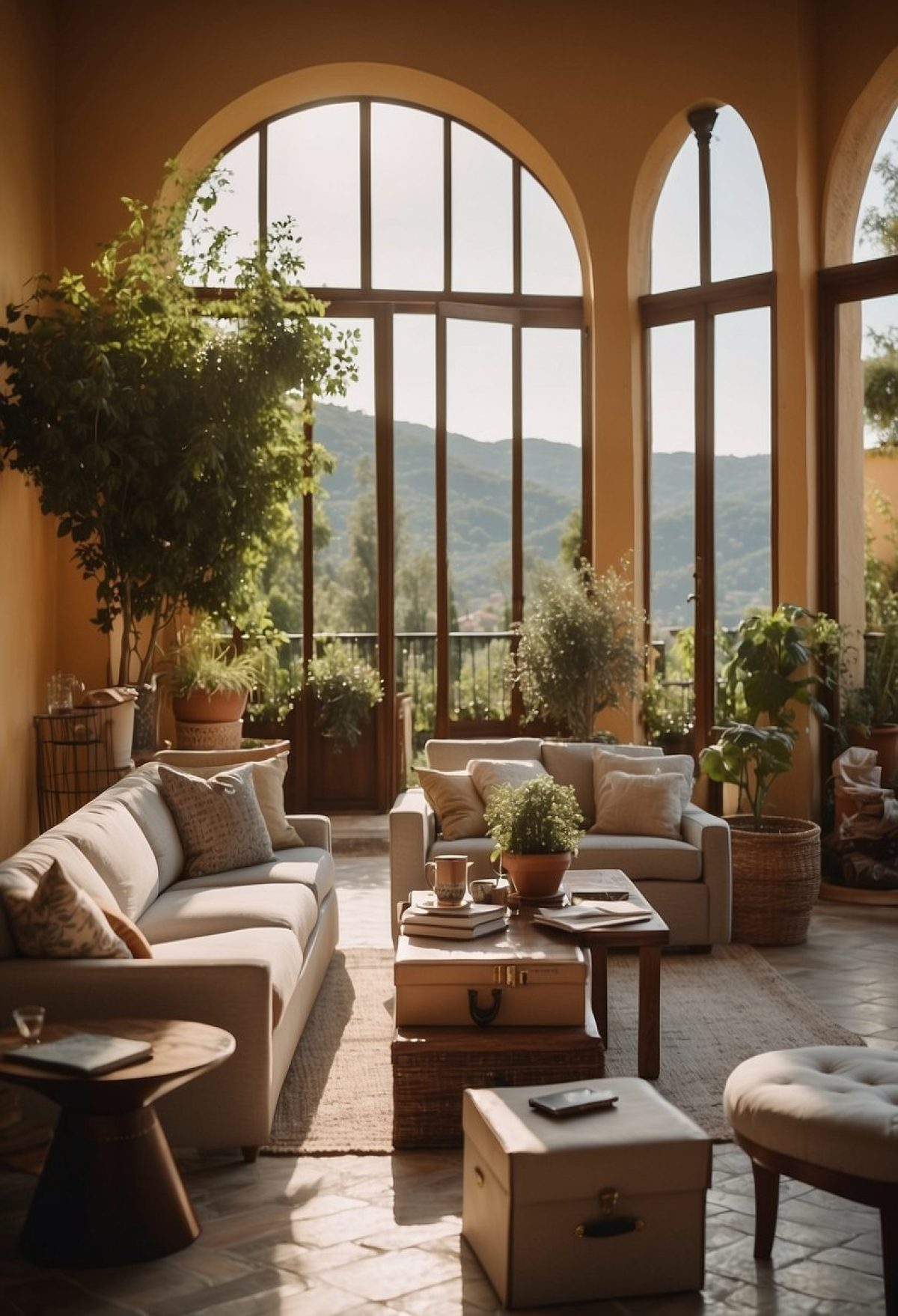
When you arrive at your villa in Italy, getting settled is crucial so you can start enjoying your stay right away. Let’s explore some practical tips for a smooth arrival and making the most of your new temporary home.
Checking In Procedures
First things first: the check-in process. It’s important to confirm your check-in time with the villa owner or rental company in advance to avoid surprises. When we get to the villa, we should look for any instructions left for us, like keys or welcome notes. Often, there might be a lockbox, so having the code handy before arrival is vital.
Upon entering, let’s take a quick walk-through of the villa. Check all the rooms, note anything that seems out of place or damaged, and report it immediately to the owner. It’s better to address issues right away rather than later. This way, we can avoid misunderstandings about our responsibility for pre-existing damage.
Familiarizing Yourself with the Amenities
Once we’ve checked in, it’s time to familiarize ourselves with the villa’s amenities. Typically, there will be a booklet or guide about operating appliances, using Wi-Fi, and finding local services. We can ask the owner for these details if there isn’t one.
Knowing how to use the kitchen appliances, washing machine, and other facilities is a game-changer. This ensures we can start cooking meals or doing laundry without a hitch. Additionally, spotting the fuse box and knowing how to reset it can save us from potential inconveniences later.
We shouldn’t forget to check out outdoor features like pools or garden areas. Please make sure they are clean and safe. If we have kids, securing outdoor spaces is crucial for peace of mind.
Grocery Shopping and Meals
With the villa’s amenities understood, the next step is stocking the pantry. Finding the nearest grocery store or local market is essential. In Italy, local markets often have fresh produce, meats, and bread, which can enhance our culinary experience. Shopping at these markets supports local vendors and offers fresher options than larger supermarkets.
Making a meal plan for the first few days can make grocery shopping more efficient. First, we should look for staple items: pasta, olive oil, fresh vegetables, and fruits. Also, don’t forget to pick up some Italian cheeses and a bottle of local wine; after all, we’re in Italy!
Having some easy-to-prepare snacks and meals will be helpful, especially on our first night when we might be too tired to cook a full dinner.
Managing Utilities and Amenities
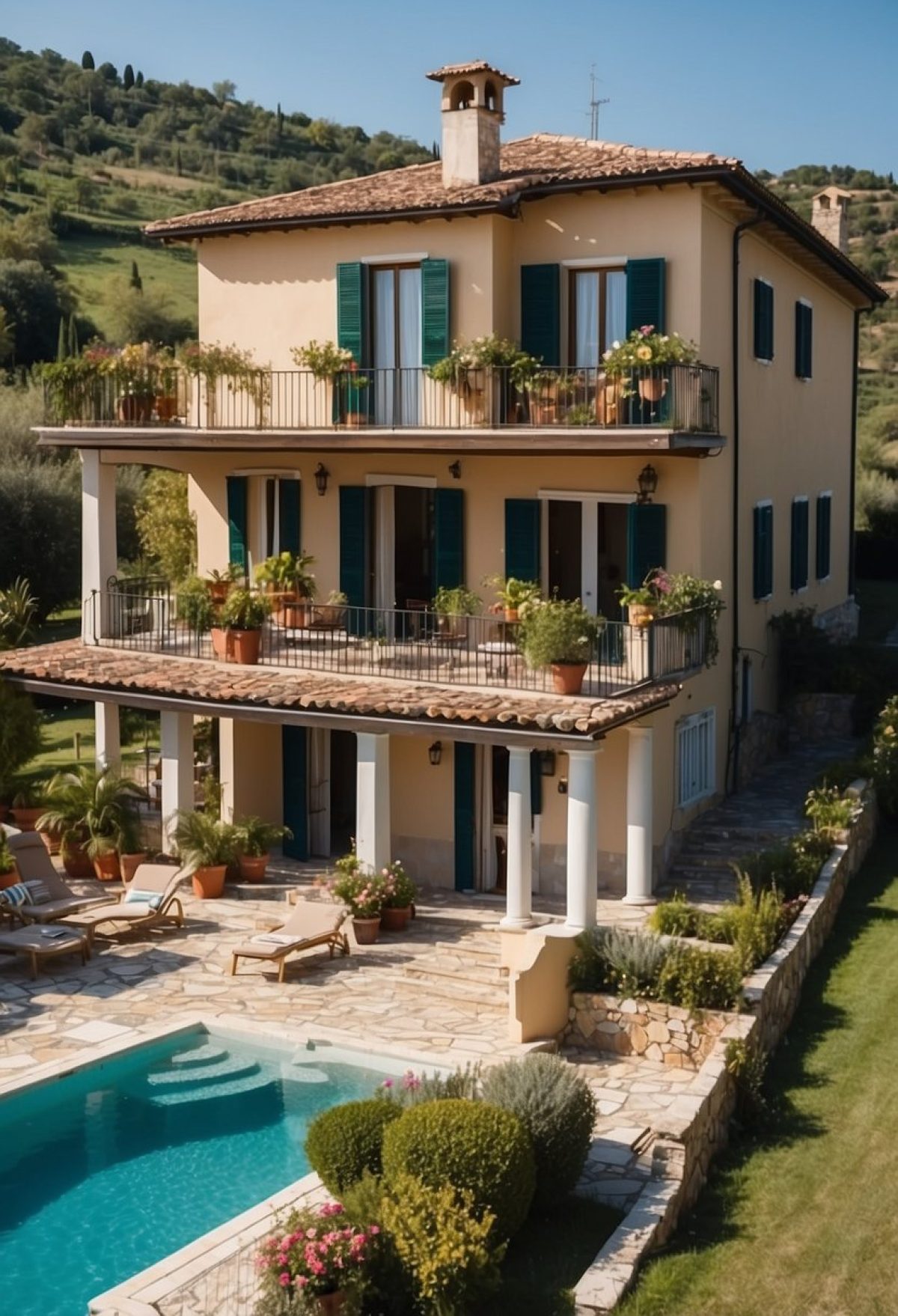
When renting a villa in Italy, there are a few important things to consider concerning utilities and amenities. Properly managing these can greatly enhance your stay and help you avoid unexpected costs.
Understanding Utility Use and Costs
Before renting a villa, one key thing to know is how utilities like electricity, water, and heating are managed. Many villas charge extra for these based on usage, especially for air conditioning and heating.
It’s a good idea to ask the villa owner or manager about the cost per unit for each utility and how to monitor usage. We found that monitoring your usage can help avoid surprise charges at the end of your stay. Simple habits, like turning off lights and air conditioning when not in use, can go a long way.
Sometimes, even items like pool towels and firewood might have additional fees. Clarifying these details upfront will prevent misunderstandings.
Accessing Internet and Communication Services
Staying connected while on vacation is crucial for many of us. Most villas will have internet access, but it’s important to check the quality and reliability of the Wi-Fi.
Ask if there are any additional charges for high-speed internet or extra data usage. Also, find out the range of the Wi-Fi to ensure it covers the entire property, including outdoor areas where you might want to relax and work.
We can also explore local prepaid SIM cards as a backup, especially if the villa is remote, where internet services might be spotty. A local SIM card can be a lifesaver for internet connectivity and cheaper communication.
Enjoying Pool and Recreation Facilities
One of the best parts of renting a villa is enjoying private amenities such as pools and recreational facilities. However, pools might have extra heating costs, especially during cooler months. Confirm if these costs are included in the rental agreement or if they are an additional charge.
Additionally, ask about the pool’s maintenance schedule to ensure it’s cleaned regularly during your stay. For other recreational activities, like tennis courts or bicycles, verify if any booking or usage fees apply.
Exploring Nearby Attractions and Activities
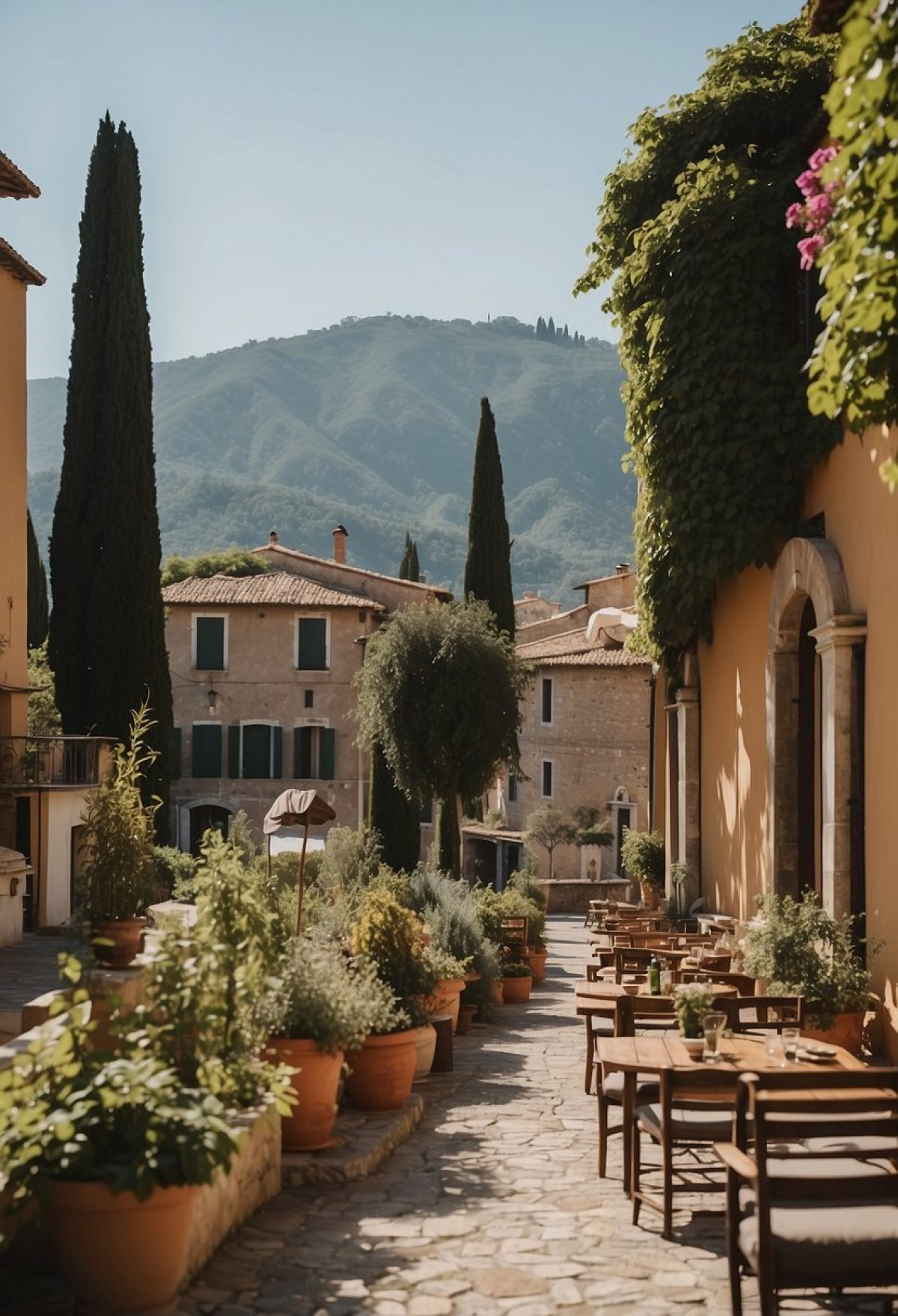
When renting a villa in Italy, you’ll find plenty of things to do and see right at your doorstep. From historical sites and museums to picturesque countryside and festivals, there is something for everyone to enjoy.
Discovering Local Attractions
Italy is rich in history and culture. Whether staying in Tuscany, near Lake Garda, or even near Florence, you’re never far from something amazing.
Museums and Historical Sites: Italian towns are often filled with museums. For instance, the Uffizi Gallery in Florence boasts a stunning Renaissance art collection. If you’re near a smaller town, don’t overlook the local museums—they often have unique finds.
Nature Spots: If you love the outdoors, Tuscany’s rolling hills and vineyards offer perfect spots for leisurely hikes or picnics. Near Lake Garda, you can enjoy both mountain and water activities.
Medieval Towns: Small medieval towns like Sirmione, located on a peninsula in Lake Garda, offer charming old streets and castles to explore. These places are often less crowded and provide a more authentic experience.
Planning Day Trips
Day trips can make your stay even more memorable. They give you a chance to experience a variety of activities and sights.
Tuscany: If your villa is in Tuscany, consider a day trip to Siena or Pisa. Siena is famous for its grand piazza, Il Campo, and Pisa for its iconic Leaning Tower.
Lake Garda: Those near Lake Garda should visit Verona. Just an hour’s drive away, it is known for its ancient Roman amphitheater.
Countryside Adventures: Italy’s countryside is perfect for biking or even hot air balloon rides. Many towns offer rental services, and it’s a fantastic way to see the landscape.
Public Transport Options: Using Italy’s efficient train system to make things easy. Trains are an effective way to see multiple cities, especially with kids. Always check schedules beforehand so you can plan your day without a rush.
Participating in Local Events and Festivals
Getting involved in local events and festivals is a great way to immerse yourself in Italian culture. They provide unique experiences and memories.
Festivals: Italy has countless festivals, from food events like Sagra del Tartufo (Truffle Festival) in Tuscany to large-scale historical reenactments in Florence. Look for posters or ask locals about upcoming events.
Farm Visits: Some rural areas offer farm tours, where you can see traditional cheese-making processes or participate in olive picking. These hands-on experiences are fun for the whole family.
Markets: Weekly markets in towns are perfect for finding fresh produce and local crafts. You can mingle with locals, sample foods, and buy unique souvenirs. Being part of this hustle and bustle is one of the simplest pleasures in Italy.
Budgeting and Money-saving Tips
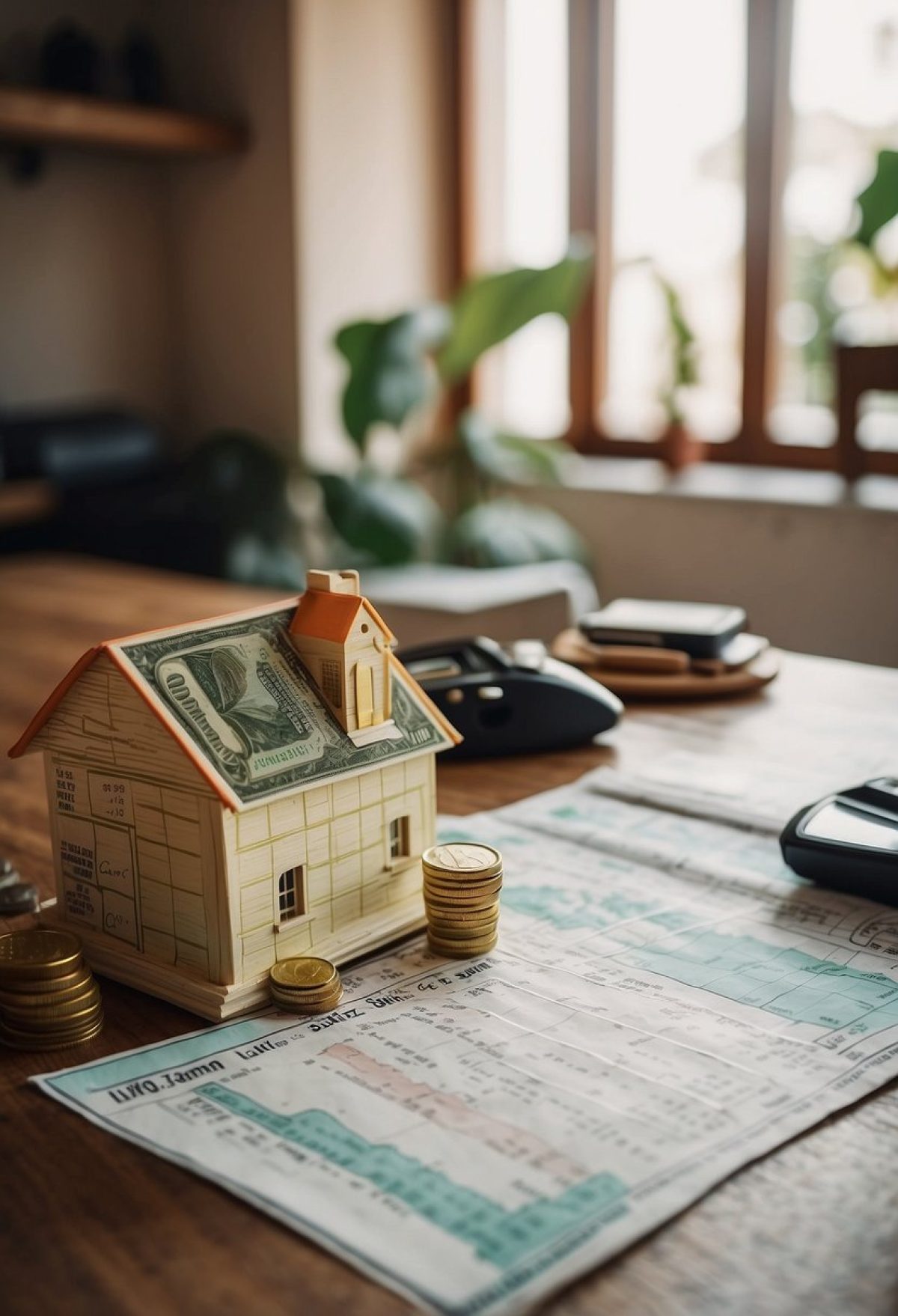
Renting a villa in Italy can be an exciting experience. Planning your budget carefully, leveraging great deals, and minimizing travel costs can make your stay both enjoyable and affordable.
Planning Your Budget
First, let’s talk about setting up your budget. It’s crucial to map out your expenses before you start your trip. A detailed budget helps you avoid any nasty surprises. Consider the cost of rent, utilities, groceries, and any activities you plan to do.
We recommend making a list of all potential expenses:
- Rent: Know exactly how much you’ll be paying monthly.
- Utilities: Check if utilities are included in your rent or if you need to pay separately.
- Groceries: Plan your meals to keep food costs down.
- Transportation: Factor in the cost of getting around, whether it’s public transport or renting a car.
This way, you can track your spending and stay within your means.
See Related: The Best Way to Travel Around Italy in 2024
Taking Advantage of Deals and Discounts
We all love a good deal, right? Look for discounts and special offers that can save you money. Many websites and apps offer coupons or promo codes for everything from food delivery to tourist attractions. Sign up for newsletters to get the latest deals directly to your inbox.
Another tip is to book your villa early. Early bookings often come with significant discounts. And don’t forget to negotiate! Sometimes, landlords might be willing to lower the rent, especially if you stay for an extended period.
Also, consider shopping at local markets and stores. You’ll often find better prices than big supermarkets and a chance to experience local culture.
Minimizing Costs While Traveling
Traveling around Italy can quickly rack up costs, but we’ve got some tips to help you minimize them. Opt for public transportation whenever possible. It’s usually cheaper than taxis and much better for the environment. Buses and trains are quite reliable in Italy.
When it comes to dining, try cooking at home in your villa. Not only does it save money, but it also gives you a chance to experiment with local ingredients. And when you eat out, look for restaurants off the beaten path. They tend to be less expensive and more authentic.
Finally, consider traveling during the off-peak season. Flights and accommodations are generally cheaper, and you’ll avoid the crowds. Plus, you’ll have a more relaxed and genuine experience in Italy.
Dealing with Emergencies or Issues at the Villa
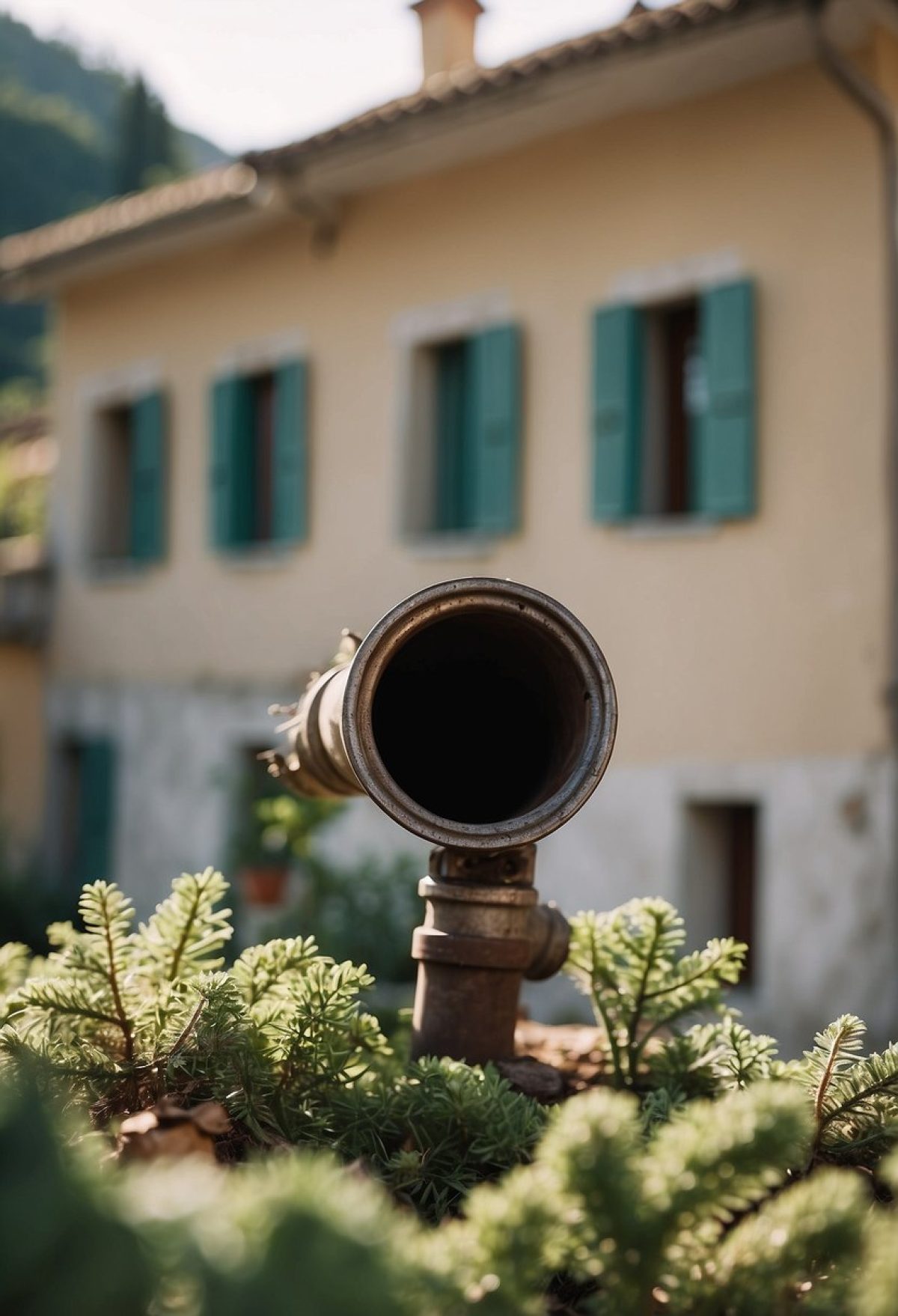
Handling unexpected problems can be challenging when staying in a villa in Italy. Knowing who to contact and how to handle maintenance, emergencies, and healthcare will help make your stay more pleasant.
Handling Maintenance Problems
Checking the villa’s manual can solve many minor issues. These booklets often include tips for common issues, like resetting the Wi-Fi or troubleshooting kitchen appliances.
You should contact the property manager if the problem is bigger, like a plumbing leak or electrical issue. They usually have a list of reliable local professionals. Make sure you keep the contact information of the landlord or property manager handy from the beginning of your stay.
If you feel comfortable, minor fixes can sometimes be done using basic tools found in the villa. Simple tasks such as unclogging a drain or replacing a light bulb can save you a lot of headaches and waiting time.
Helpful tip: Always take pictures of the problem before you touch anything. It documents the issue and could be useful if there are disputes over damages later.
Contacting Local Authorities
Contacting local authorities should be crucial to a serious emergency, such as a fire or break-in. In Italy, the emergency numbers are:
- 112 for general emergencies connects you to police, fire, or medical services.
- 113 for police.
- 115 for the fire department.
- 118 for ambulance services.
Keep these numbers written down in multiple places, like on your phone and a paper backup.
It’s also a good idea to know the address of your villa for quick reference. When relaying your location to emergency services, you might need to provide specifics such as landmarks or nearby roads, especially in rural areas.
Pro tip: Learn a few basic Italian phrases to help communicate your emergency. Most operators can speak English, but being able to describe your problem in Italian can speed things up.
Navigating Health Care Services
Knowing how to navigate the healthcare system can make a stressful situation more manageable if you or someone in your party falls ill. Italy has a well-regarded healthcare system, but the process may differ from what you’re used to.
For non-urgent health issues, seek out the nearest Guardia Medica Turistica, a medical service specifically for tourists. These clinics can provide necessary medical care and prescribe medications.
If you have an urgent health problem, go to the nearest hospital’s emergency room (Pronto Soccorso). Bring your ID, insurance information, and any relevant medical records.
Here’s a handy tip: Pharmacies in Italy (Farmacia) can offer advice and sell over-the-counter medications. They are knowledgeable and can help you decide whether to see a doctor.
Keeping a small first-aid kit with basic supplies like band-aids, antiseptic, and pain relievers is also a smart idea for minor injuries or ailments. Having these items on hand gives you peace of mind.
Checking Out and Departure Procedures
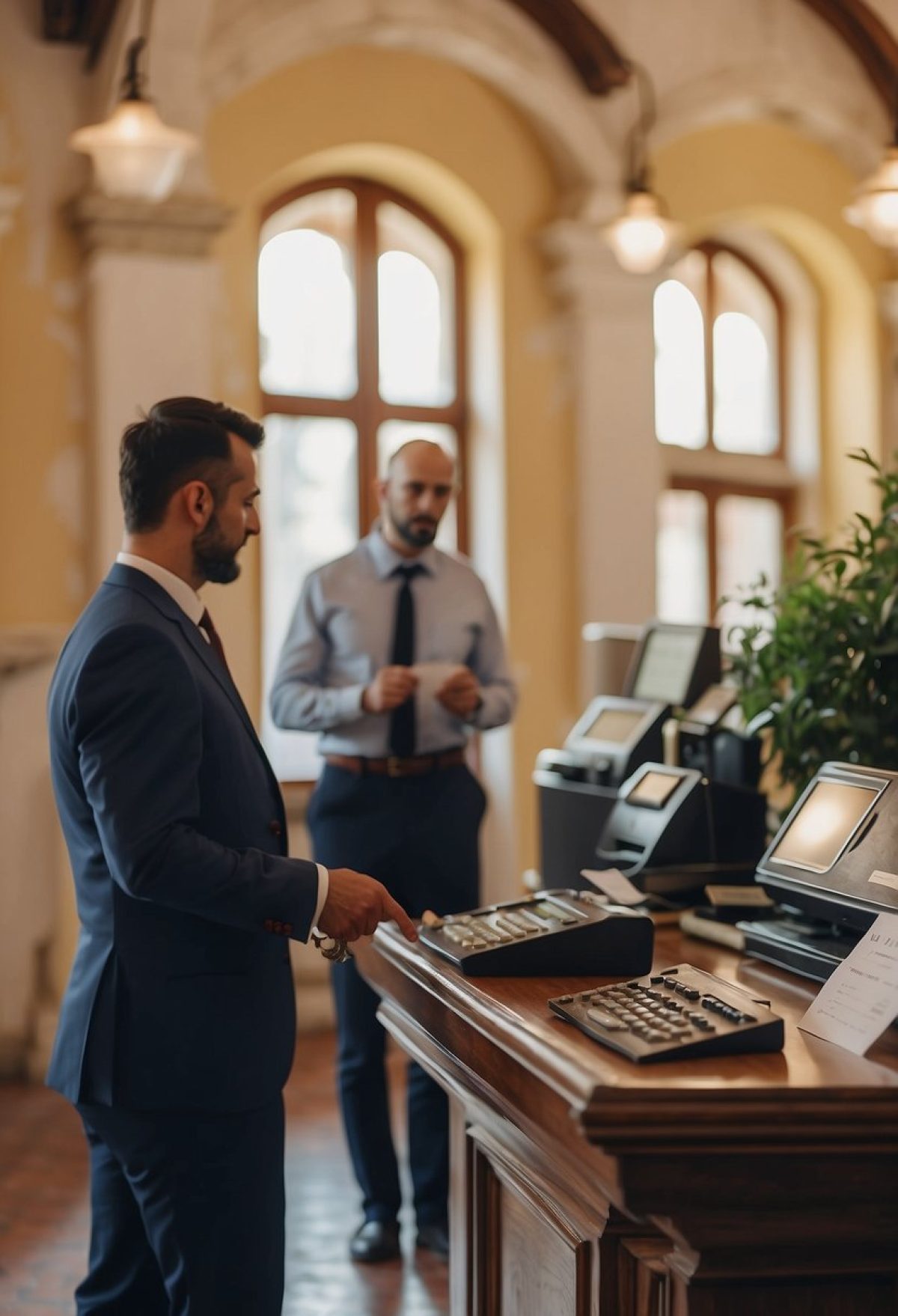
Leaving a villa in Italy can be as enjoyable as your stay if done right. We’ll cover how to pack, handle final payments, and provide reviews to make your departure smooth.
Packing and Preparing to Leave
First, let’s talk about packing up. Start by organizing items the night before your departure. Trust me, it saves a lot of hassle in the morning. Check under beds and closets—you’d be surprised how often things get left behind.
Create a checklist for personal items such as electronics, chargers, passports, and medications. Place them in your carry-on to ensure they’re easily accessible. Don’t forget to gather any souvenirs or gifts you might have bought during your stay.
Next, tidy up the villa. It’s courteous to leave the place in good condition. Return any moved furniture to its original spot and take out the trash. Most rental agreements ask for this, which helps you get your security deposit back.
Finalizing Payments and Deposits
Before you check out, make sure all your payments are settled. Double-check the payment methods accepted by the host. Sometimes, they prefer cash, especially in smaller towns, so have some euros ready.
Clear any outstanding balances for accommodation or services used during your stay. This might include extra cleaning fees, use of amenities, or late check-out charges. Many places now send payment requests via email or app, which is convenient.
Don’t forget about the security deposit. If you paid one, ask when and how it will be returned. Capture photos of the villa as you leave, showing its condition. This documentation can be handy if any disputes arise about the deposit.
Leaving a Review and Feedback
Finally, let’s talk reviews. Feedback is vital for both future guests and hosts. When you leave a review, be honest and detailed. Mention what you loved and any areas that might need improvement.
Did the host go out of their way to help you? Highlight that. Was the bed creaky or the Wi-Fi spotty? Mention that, too. Your insights help others decide if this villa is right for them.
Remember to say thank you. A kind word can brighten someone’s day. Leave a note or message thanking the host for their hospitality. It’s a small gesture that can mean a lot.

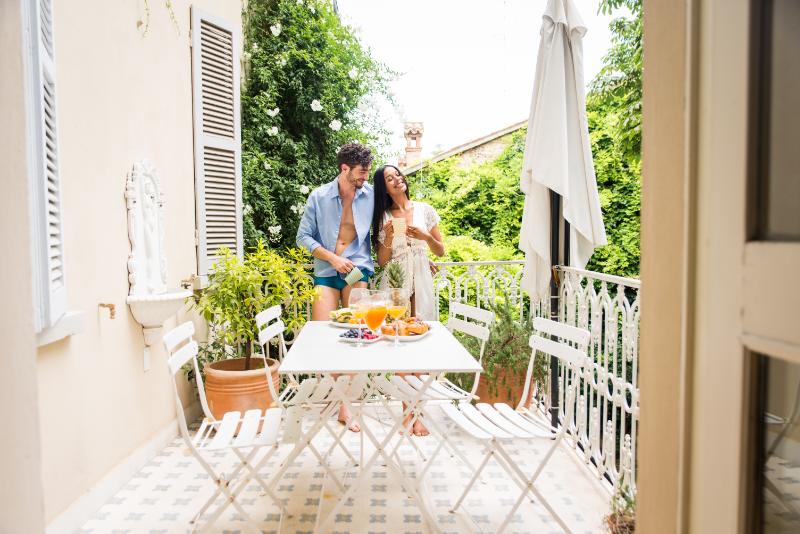
0 Comment